In August, I had the opportunity, thanks to my membership in IACP, to attend a two-day conference put on by the North American Olive Oil Association entitled “Spend Wisely on Olive Oil.” I am what NAOOA calls a “primary” olive oil user, meaning I use olive oil more than any other oil. I thought I was knowledgeable about about this ancient and miraculous product going in to the conference, but I quickly discovered that I had a lot to learn. As a result of my experience, I have an even greater appreciation for olive oil and have changed how I use it in my cooking.
First, I was surprised to learn that the United States has a low per capita consumption of extra virgin olive oil, especially compared to Mediterranean countries such as Spain, Italy and Greece. (We consume a lot of EVOO overall because, you know, there are so many of us. But per person, we use very little compared to other places.) As I mentioned, I use olive oil for almost all of my cooking, and had mistakenly assumed that other people do as well. But I was reminded in the discussions that olive oil tends to be more expensive than other oils and that many Americans are not familiar with its uses, both of which can be barriers to entry. This is what the NAOOA is hoping to change.
Compared to other fats and oils, however, extra virgin olive oil is in a class by itself. The versatility, health benefits and ancient heritage of olive oil all set it apart. Did you know that humans began using oil from olives over 6000 years ago in Asia Minor? Its use spread thanks to the influence of the Greeks. Some of you may know the myth of how the Greek goddess of wisdom, Athena, gave the city of Athens an olive tree as a gift and in return for this gift, that provided the citizens with fruit, oil and wood, the city named itself after her.
I could go on and on about how healthy olive oil is. Indeed, there were several speakers at the conference who spoke in hard-core scientific terms about the unique health properties of olive oil and I do not pretend to understand the chemistry. But, many of us know on some level that the Mediterranean diet, based on olive oil, promotes longevity and good health.
The health benefits of extra virgin olive oil are, in fact, two-fold. First with its fatty acids and phyto-chemicals, olive oil itself is astonishing good for you. But beyond that, there is the added benefit of olive oil’s unique flavor. Olive oil makes other healthy foods, such as vegetables and fish, taste delicious. As Dr. Connie Gutterson stated in her keynote address, flavor is a health issue. If food doesn’t taste delicious, no one is going to eat it no matter how good for you it is.
Given how incredibly good for us extra virgin olive oil is, it is exciting to realize also how versatile it is. You can replace other fats with olive oil in cooking; you can serve on table instead of butter, you can even use it in baking.
The key here is to realize that there are many different types of olive oil, from robust to delicate. A well-stocked kitchen might have several different olive oils in it, at different price points and you reach for a different bottle depending on what your goal is. For grilling or sautéing, for example, you might chose an oil with a stronger flavor or one that is slightly bitter. The stronger oil can stand up to the bold flavors of meats and the oil will even capture the smoky flavor from the grill.
But to finish foods or dress salads, you might chose a fruity olive oil — one that you will really taste in your dish. Here is a tip on finishing a dish with olive oil from New York chef and restauranteur, Seamus Mullen, who also spoke at the conference: when making soup — any kind of soup, be it a hearty stew or a delicate cold soup — add a drizzle of good, fruity olive oil prior to serving. Not only does the oil look beautiful, it adds aroma and taste. The oil is not integrated into dish, and as a result, each bite is a little different. Chef Mullen also told us that you can even finish desserts with a drizzle of fruity olive oil. It pairs exceptionally well with fruit and, yes, chocolate.
The one reason that I keep vegetable oil around is for baking quick breads and similar sweet recipes that call for oil not butter. But one thing I learned at the conference is that I can replace other vegetable oils with olive oil. Not extra virgin olive oil, which may taste too strong, but regular olive oil. More processed olive oil does not have as many health benefits as extra virgin, but it is still a healthier choice than other vegetable oils. I am going to try it in my baking this holiday season.
Since returning from the Spend Wisely on Olive Oil conference, I have changed my own consumption habits when it comes to olive oil. As before, I keep a large bottle of a grocery store brand of olive oil in my cupboard — store your olive oil away from heat and light, by the way. I reach for that bottle when I am beginning a dish, as I so often do, by sautéing onion or garlic in olive oil.
But now I have added a second and even a third bottle of olive oil to my pantry, more expensive and special bottles such as this award-winning Venta del Baron oil from Spain. Right before serving a dish, such as a plate of pasta, a salad, or a hearty stew, I reach for one of these finishing oils to drizzle over top of the food. I have been amazed by how the oil enhances the flavor of other ingredients, from vegetables to meat, while adding its own flavor. I use the more expensive oil sparingly, and only when I am confident that I will really taste its flavor. In that way, I feel like I am getting good value for the extra expenditure.
Do you have a favorite olive oil? Or do have use olive oil in an unexpected way? If so, I would love to hear about it. If you are not using olive oil as your primary cooking oil, why not?
Full disclosure time: NAOOA invited five IACP members to attend the conference free of charge and I was one of those selected. I was not asked to write about my experience nor did I receive any compensation. I was given a bottle of olive oil to take home. As always, all opinions expressed herein are entirely my own.
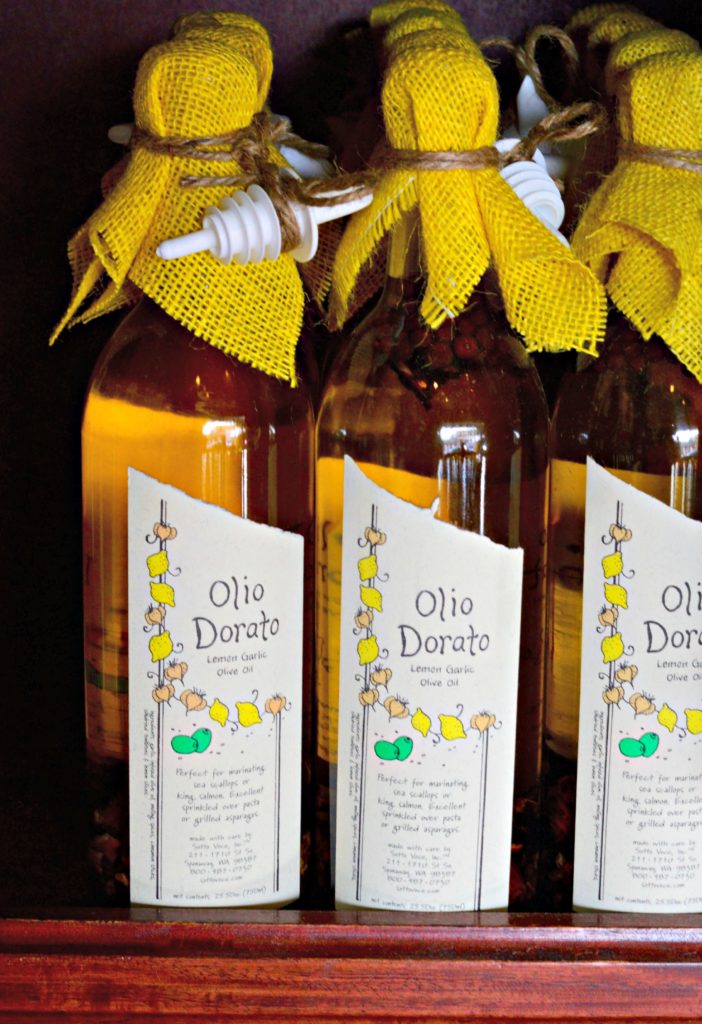
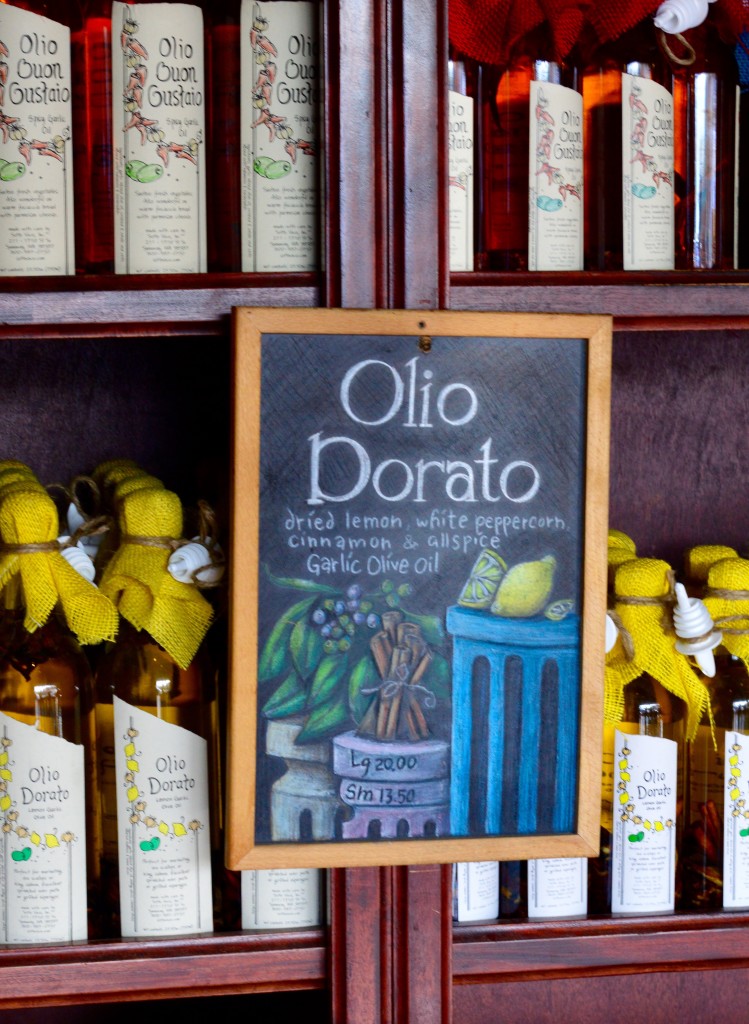
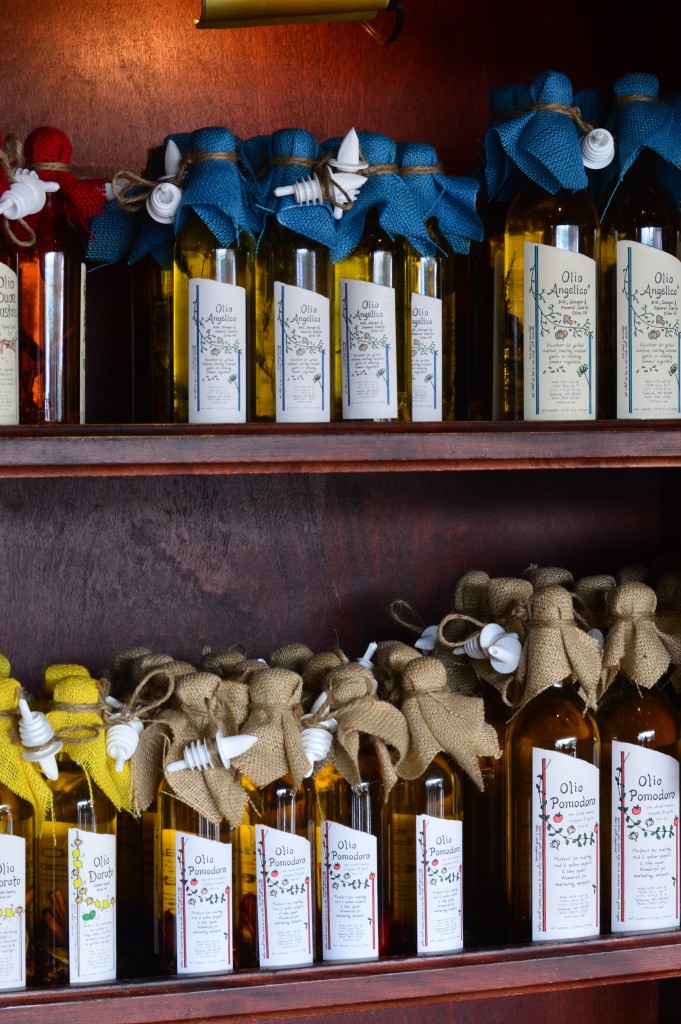
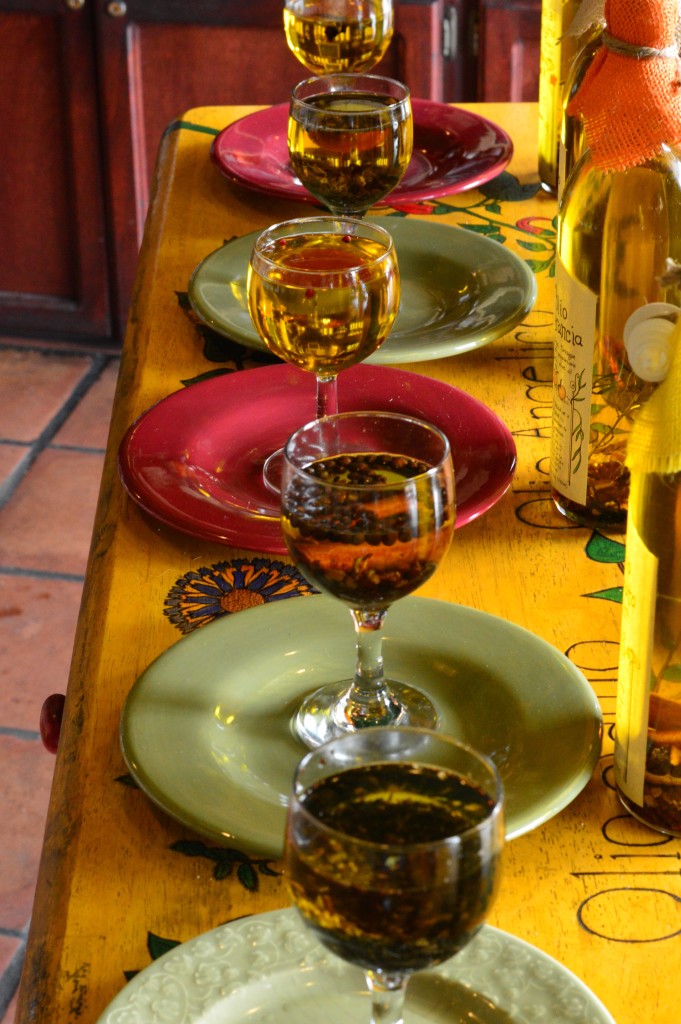
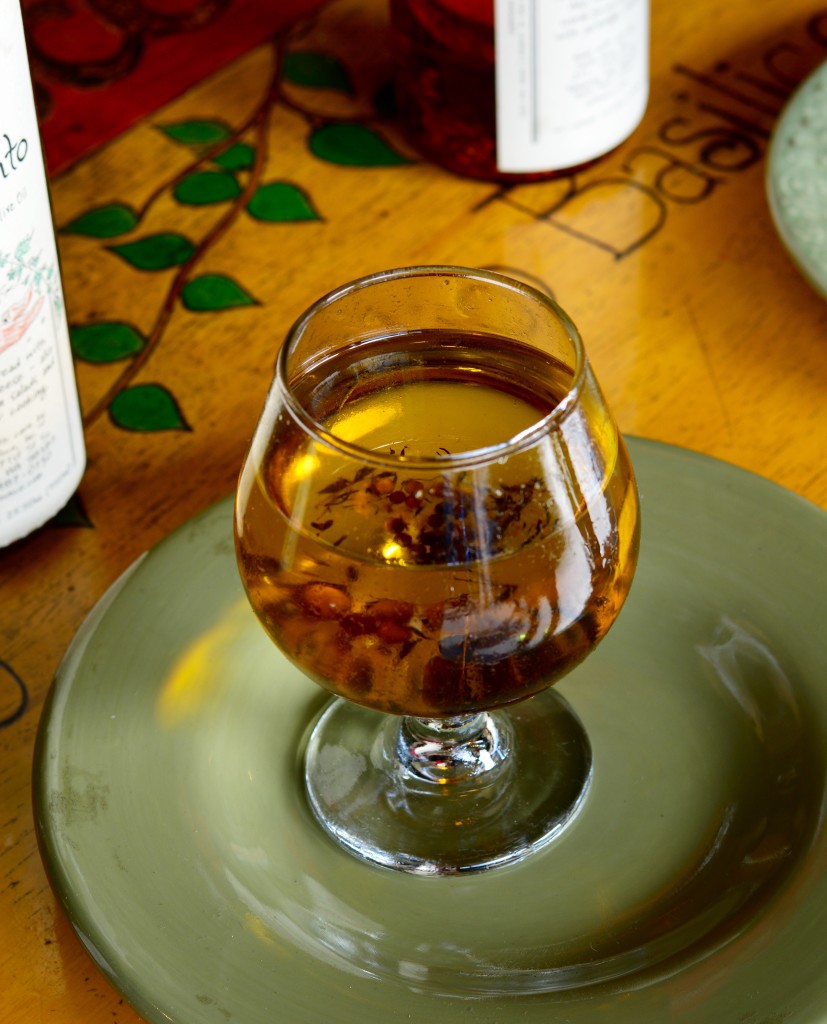






I enjoy your comments, but there are other oils that are as good for you as olive oil. Canola is one example, and soy oil is not far behind. It would be great to see a realistic comparison.
Thank you so much for starting the dialogue! It is my understand that extra virgin olive oil has more monounsaturated fats and lower saturated fat per tablespoon than canola oil and significantly more monounsaturated fats per tablespoon than soy oil. While canola oil is good for your heart, it does not contain the antioxidants, polyphenols and omega-3 fatty acids of extra virgin olive oil, which can promote cardiovascular health and cognitive function as well as boosting your immune system and protecting you from certain types of cancer.
Hi Emily! I enjoyed reading this. I, too, LOVE olive oil and have a “cooking” bottle and a “drizzling” bottle. I have started using Sunflower Oil since the Sugar Beet Food Co-op opened in Oak Park. They sell it in bulk and it’s a product called Century Sun Oil that is made in Wisconsin by small family farmers. Do you know how it stacks up against Olive Oil? I am trying to eat local, like the taste of sun flower oil and find it to be cheaper than most olive oils but I wonder how the health benefits differentiate it.
Thank you!
http://www.centurysunoil.com
Such a great question Cheryl and I can see the appeal of a sunflower oil that is produced so locally. Sunflower oil is a polyunsaturated fat and olive oil a monounsaturated fat. Sunflower oil therefore has more linoleic acid than olive oil but less oleic acid, just in terms of the fatty acids. Oleic acid is an omega-9 fatty acid which reduces “bad” cholesterol and increases “good” cholesterol. Linoleic acid is an omega-6 fatty acid which some researchers believe that North Americans consume too much of. Indeed, these days, we eat more omega-6 fatty acids than omega-3s and some people think that imbalance is responsible for many modern health problems. You may find this article helpful: http://www.aboutoliveoil.org/ooemerginghealthbenefits.pdf
I have always used olive oil, except canola for heavy duty frying. My newest love is a Tunisian olive oil from Trader Joe’s. It’s fruity and delicious!
That’s terrific! I heard at the conference that we are going to be seeing a lot more Tunisian olive oil in the North American market – good news for you!
Hi Emily, I guess I am also a primary olive oil user. My favorite is Costco Kirkland Signature Extra Virgin Toscano. It is the real deal, they test it, and you can’t beat the price (see here: http://www.lifeinitaly.com/best-olive-oil-us). With the crop being so poor this last year I was amazed Costco still had the Toscano for sale (briefly) and snapped up my year’s supply. Down to one bottle now, waiting for that new crop! Others I like are California estate olive oil from Trader Joe’s and Far North estate olive oil from New Zealand– pricey, but I get it once in a while from my co-op (the guy who owns it spends half the year here and half in NZ– sounds like a good deal and I know which half of the year he chooses to be in NZ).